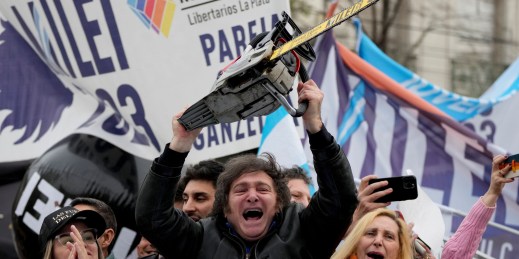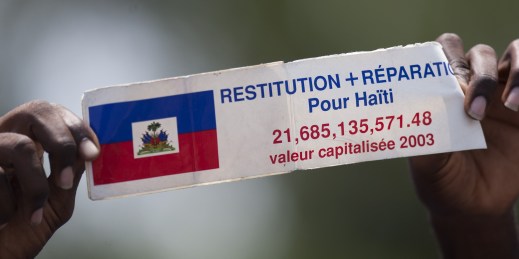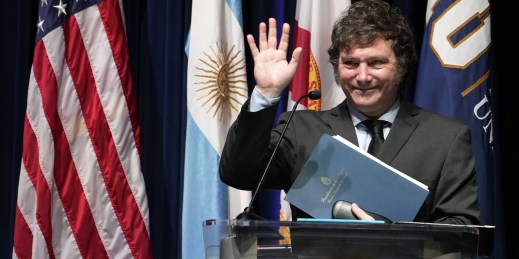The Americas Archive
Free Newsletter

Something unfamiliar is spreading in Argentina: optimism. The impact of President Javier Milei’s dramatic economic reforms has exceeded expectations, even as Milei has maintained popular support. But there is now so much enthusiasm that it raises the risk of irrational exuberance, especially given the scale of the challenge ahead.

Last week, Nicaragua canceled its deal with a Chinese company to build and manage a canal that stretches across Central America, ending a decade-long saga. Despite this development, China’s influence in Nicaragua has never been greater, in large part due to the diplomatic isolation of President Daniel Ortega’s autocratic government.

Name-calling among Latin America’s leaders has reached the level of schoolyard smears and taunts, but with far more significant implications. It has resulted in recalled ambassadors and crumbling diplomatic relations. And it has made the longstanding dream of regional integration seem more distant than it has been in decades.

The movement seeking reparations for slavery and colonialism has so far been met with minimal buy-in from the former colonial powers that benefited from the trans-Atlantic slave trade. But engaging with calls for reparations could be a powerful diplomatic gesture that those nations could offer to the Global South.

Last month, Colombia announced it will apply for BRICS membership, and Argentina formally requested to become one of NATO’s global partners. Ten years ago, both of those statements would have sounded absurd. But while they are a sign of Latin America’s changing diplomatic alliances, it would be a mistake to read too much into them.


